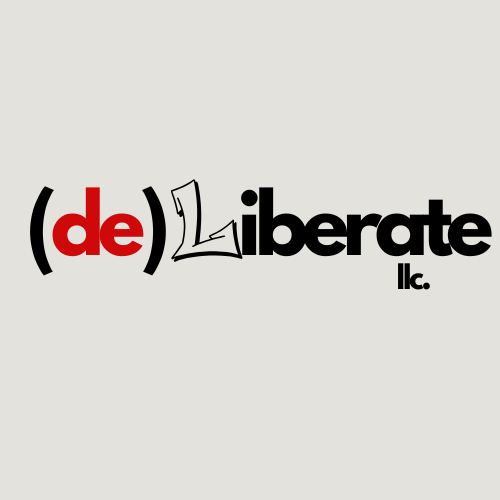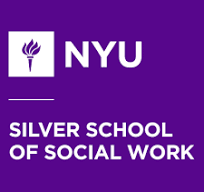New York State and ACE-approved Continuing Education Course
What does this mean for you? ACE approval signifies that the provider or course meets high standards for quality and relevance, supports professional competency, and is generally accepted by social work regulatory boards in the United States and Canada.
We offer innovative, practice- and empirically-based trainings for social workers and social work supervisors with a focus on how to integrate anti-racist tenets into their practice. This includes building general, foundational knowledge of anti-racist/anti-oppressive practice, as well as more focused and advanced integration within specific practice milieus (e.g., host settings, private practice, healthcare), with particular service user groups (e.g., individuals with substance misuse challenges, individuals with chronic medical illness, individuals living in poverty), and/or with certain dynamics at play (e.g., working across differences, interdisciplinary team work, working with supervisees).
We are accessible to social workers with the capacity to join live trainings, as well as engage in self-study.
We strive to create an inclusive learning environment open to individuals at all stages of practice, critical consciousness development, and career.

What can you expect?
Take a minute to write an introduction that is short, sweet, and to the point. If you sell something, use this space to describe it in detail and tell us why we should make a purchase. Tap into your creativity. You’ve got this.
Anti-racist Practice as a Path to Liberation: Foundations of Anti-racist Practice(For Practitioners)
HYBRID COURSE
Anti-racist Supervision as a Path to Liberation: Foundations of Anti-racist Supervision(For Supervisors and Leadership)
HYBRID COURSE
Self-Study
For Practitioners
For Supervisors
For Social Work Practitioners
Ground your approach in anti-racist practice tenets through creative and engaging learning sessions
-
Anti-racist Practice as a Path to Liberation: Foundations of Anti-racist Practice (6 live contact hours): This course offers an overview of anti-racism social work practice tenets. By drawing connections between macro, societal dynamics, and micro-level dynamics, participants will be exposed to how racism, bias, and identity impact social work practice. Participants will be offered practice-based strategies to apply anti-racist tenets to clinical engagement, including bias disruption, surfacing counter-narratives, utilizing structural assessments, and building a liberatory practice. Last, the course content will shed light onto the impact of organizational variables on efficacious anti-racism social work. Through the application of these strategies, participants will have the opportunity to integrate anti-racist approaches to social work in their practice. This will help push social work towards more race-conscious and just practice. The cost for this course is $180.
-
Anti-racist Practice as a Path to Liberation: Foundations of Anti-racist Practice (3 recorded content hours; 3 self-study hours; NYS CE only): This course offers an overview of anti-racism social work practice tenets. By drawing connections between macro, societal dynamics, and micro-level dynamics, participants will be exposed to how racism, bias, and identity impact social work practice. Participants will be offered practice-based strategies to apply anti-racist tenets to clinical engagement, including bias disruption, surfacing counter-narratives, utilizing structural assessments, and building a liberatory practice. Last, the course content will shed light onto the impact of organizational variables on efficacious anti-racism social work. Through exposure to these strategies, participants will have the opportunity to integrate anti-racist approaches to social work in their practice. This will help push social work towards more race-conscious and just practice. The cost for this course is $150.
-
2025
Tuesdays 11:30am-1:30pm
September 2nd, 9th, 16th
For Social Work Supervisors
Enhance your anti-racist supervisory capacity and build towards liberatory practice modalities
-
Anti-racist Supervision as a Path to Liberation: Foundations of Anti-racist Supervision (8 live contact hours): This course offers an overview of anti-racism social work practice tenets and strategies for engaging in anti-racism supervision. By drawing connections between macro, societal dynamics and the interpersonal dynamics within the supervisory milieu, participants will be exposed to how racism, bias, and identity impact supervision. Participants will be offered practice-based strategies to build upon generalist supervisory skills to both identify and address racism and/or biases within the practice of their supervisees, enhance the relational dynamic, center race, teach and model structural assessments, offer incremental psychoeducation to enhance critical consciousness, model accountability, and move towards liberatory practice. Last, the course content will shed light onto the impact of organizational variables on efficacious anti-racism supervision. Social work supervisors play a significant role in molding and influencing the practice of their supervisees. Through the application of practice-based strategies, participants will have the opportunity to integrate anti-racist approaches to social work in their supervisory framework. This will help push social work towards more race-conscious and just practice. The cost for this course is $240.
-
Anti-racist Supervision as a Path to Liberation: Foundations of Anti-racist Supervision (4 recorded content hours; 4 self-study hours; NYS CE only): This course offers an overview of anti-racism social work practice tenets and strategies for engaging in anti-racism supervision. By drawing connections between macro, societal dynamics and the interpersonal dynamics within the supervisory milieu, participants will be exposed to how racism, bias, and identity impact supervision. Participants will be offered practice-based strategies to build upon generalist supervisory skills to both identify and address racism and/or biases within the practice of their supervisees, enhance the relational dynamic, center race, teach and model structural assessments, offer incremental psychoeducation to enhance critical consciousness, model accountability, and move towards liberatory practice. Last, the course content will shed light onto the impact of organizational variables on efficacious anti-racism supervision. Social work supervisors play a significant role in molding and influencing the practice of their supervisees. Through exposure to practice-based strategies, participants will have the opportunity to integrate anti-racist approaches to social work in their supervisory framework. This will help push social work towards more race-conscious and just practice. The cost for this course is $200.
-
2025
Fridays 10am-12pm
September 5th, 12th, 19th, 26th
External Training Opportunities
New York University (NYU) Silver School of Social Work
Anti-racist Supervision as a Path to Liberation: Foundations of Anti-racist Supervision (Oct-Nov, 2025)
Anti-racist Supervision as a Path to Liberation: Foundations of Anti-racist Supervision with Sarah Ross Bussey, PhD, LCSW, MSW; Monica X Thompson, Mphil, LCSW, MSW, LCAS
Date(s): Friday 10/24/25, Friday 10/31/25, Friday 11/14/25, & Friday 11/21/25
Time(s): 10:00am-11:30am
(7 continuing education contact hours will be awarded upon completion of the evaluation)
Link to register here
FAQs
What is your refund policy?
All refund requests must be submitted in writing to admin@wedeliberate.com no later than three business days prior to the workshop date. If you do not attend, you will be considered a ‘no-show’. Refund e-mails must include the subject line "Refund Request" as well as the attendee's name, workshop date and title in the body of the e-mail. If a refund is requested later than three business days prior to the workshop date, de-Liberate LLC has the right to refuse the request.
• All refunds are subject to a fee of 20% for administrative processing fees.
• Refund requests typically take 5 business days processing time.
• In the case of a no-show or partial participation, no refund will be granted
• We do not issue credits or apply refunds towards a future course. You can only receive a refund.
• You will not be able to receive a recording of the presentation for credit.
You will receive a full refund in the case that de-Liberate LCC cancels the event.
What is required to earn CE credits?
All participants must attend the entire event for which they registered. No partial credits will be given.
You will receive a confirmation email with the webinar join link after you complete your registration to the email address you registered with. Please be sure to check our spam, junk, and promotion folder for this, as well.
CE certificates will be sent via email within ten business days of the training completion date.
Are your trainings virtual or in-person?
Our trainings are all conducted virtually. The hybrid courses utilize online live session didactic, small group break out exercises, group exercises, and reflection points, combined with self-study for shared foundational content. The self-study courses utilize online recorded didactic and reflection points, combined with self-study for shared foundational content, as well as “worksheet” exercises.
What is your approach to course development and teaching?
Our course design approach includes:
offering information in an accessible and comprehensive manner while honoring the wisdom and experience of the participants in the room. We appreciate and work from the bi-directional learning and the liberatory model, as offered by Paulo Freire and bell hooks. For example, we strive to cultivate critical thinking, such as through critical dialogue (where the process is valued as much or more than the outcome), which aids in consciousness development. This encourages learners to evaluate their own actions and thinking and supports critical analysis at all societal levels (helping draw connections between the macro and micro systems and making visible oppressive dynamics at play).
beginning engagement with a learner group by exploring how to create an educational space respectful of a range of lived experiences. We develop shared agreements that are a means for accountability and mutual respect, acknowledging that growth and learning involves discomfort (the experience of which ranges depending on content and positionality).
utilizing practice-based learning to build social work skills and competencies. Practice-based learning creates opportunity for the learners to see and experience themselves in the content, which can lead to more in-depth comprehension. In addition, with skill application such as role play or other forms of creative application, the learner practices navigating through challenging clinical junctures and/or sitting in discomfort. This becomes transferrable to in vivo practice.
striking a balance between didactic content presentation and application/integration of knowledge. When creating curriculum/training content, we blend a range of modalities/tools.
The courses we developed are built out of prior training and qualitative research findings. Content and approaches found historically to be effective are built upon and expanded for enhanced learning.






